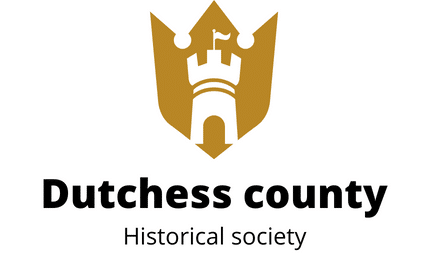How to Optimize the Supply Chain for UK-Based Ethical Fashion Brands?

The fashion industry has come under the spotlight over the past few years, with consumers becoming increasingly aware of the environmental and ethical implications of their clothing choices. As a result, many fashion brands are striving to improve their sustainability practices and become more transparent about their supply chains. Among these are UK-based ethical fashion brands, who are at the forefront of this shift towards sustainable and ethical practices. This article highlights how these brands can optimize their supply chains to further boost their sustainability credentials and resonate more deeply with consumers.
Understanding the Current State of the Fashion Industry
Before we delve into how to optimize the supply chain, it’s crucial to understand the current state of the fashion industry. Despite the increasing demand for ethical and sustainable fashion, the industry is still plagued by environmental and ethical issues.
Also to see : What Strategies Can UK Independent Bookstores Use to Thrive in the Age of E-readers?
The fashion industry is the second-largest industrial polluter globally, due to the extensive use of energy and water in production processes. Furthermore, the industry’s reliance on non-renewable resources, such as oil for synthetic fibres, is also a significant concern. Overproduction is another pressing issue, with many clothing items ending up in landfills after a brief lifecycle.
From an ethical perspective, the industry is often criticized for its labour practices, with many workers throughout the supply chain experiencing unfair wages and poor working conditions.
Also to read : Gitterrahmen: kreative ideen für ihre verkaufspräsentation
Therefore, there is a clear need for a transformation in the fashion industry, and UK-based ethical fashion brands are well-positioned to lead this change.
Ethical Sourcing and the Importance of Supplier Relationships
A critical aspect of an ethical supply chain is sourcing. This involves choosing suppliers who adhere to strict ethical and environmental standards. Ethical sourcing ensures that products are created in a way that respects workers’ rights and minimizes environmental impact.
Building strong relationships with suppliers is crucial for ethical sourcing. By understanding and collaborating with suppliers, brands can ensure that their ethical standards are being met throughout the entire supply chain.
However, ethical sourcing does present its challenges. It can often be more expensive and time-consuming than traditional sourcing methods, as it involves thorough supplier vetting and regular audits. Despite this, the long-term benefits of ethical sourcing far outweigh the initial challenges and costs.
Implementing Sustainable Practices in Production
Optimizing the supply chain for ethical fashion brands also involves implementing sustainable practices in production. This means using environmentally-friendly materials and reducing the amount of waste and energy used in production processes.
Using sustainable materials, such as organic cotton or recycled polyester, can significantly reduce a product’s environmental footprint. Furthermore, implementing waste reduction strategies, such as zero-waste cutting techniques or recycling offcuts, can further enhance a brand’s sustainability credentials.
Production processes should also be energy efficient, with brands looking to incorporate renewable energy sources wherever possible. For example, solar power could be used to run sewing machines, reducing reliance on fossil fuels.
Transparency: A Key Factor in Ethical Supply Chains
Transparency is another essential factor in optimizing the supply chain for ethical fashion brands. Brands should be open about their sourcing and production practices, enabling consumers to make informed decisions about their purchases.
This can involve detailing where materials are sourced, how products are made, and the working conditions of employees throughout the supply chain. Brands can communicate this information through their websites, product labels, or dedicated transparency reports.
Consumers are becoming more savvy and are demanding more information about the products they purchase. As such, transparency can not only enhance a brand’s ethical credentials but also build trust with consumers and differentiate a brand from its competitors.
The Role of Consumers in Driving Ethical Supply Chains
Lastly, it’s important to acknowledge the role of consumers in driving ethical supply chains. Consumers have the power to demand ethical and sustainable products, influencing brands to improve their supply chain practices.
Studies have shown that consumers are willing to pay a premium for sustainably-produced products, demonstrating the tangible value of ethical and sustainable supply chains for brands.
Furthermore, consumers can use their voice to hold brands accountable for their actions, pushing for greater transparency and ethical practices. This consumer activism has already led to significant changes in the fashion industry, and will continue to be a driving force in the transformation towards ethical supply chains.
Ultimately, optimizing the supply chain for UK-based ethical fashion brands involves a multi-faceted approach, incorporating ethical sourcing, sustainable production practices, transparency, and consumer engagement. By taking these steps, brands can enhance their sustainability credentials, build trust with consumers, and contribute to a more sustainable and ethical fashion industry.
The Role of Technology in Ethical Supply Chains
Embracing technology can play a significant part in optimizing the supply chain for ethical fashion brands. Technological advancements offer several solutions to the challenges faced by the fashion industry and can significantly improve the effectiveness of ethical sourcing and the sustainability of production processes.
One major area where technology can assist is in traceability. Blockchain technology, for instance, can provide complete transparency in the supply chain by tracking and recording every transaction and interaction. This technology can verify the ethical credentials of suppliers and ensure the integrity of sustainable materials used in production.
Artificial Intelligence (AI) and Machine Learning (ML) can also aid in making supply chains more sustainable. These technologies can help in forecasting demand more accurately, thereby preventing overproduction and reducing waste. Additionally, they can facilitate in identifying inefficiencies in the supply chain and suggesting ways to improve resource utilization.
Finally, the Internet of Things (IoT) can be used to monitor working conditions in real time, ensuring fair treatment of workers across the supply chain. By connecting different elements of the supply chain, IoT can also increase efficiency and reduce environmental impact, making the supply chain management more sustainable.
Conclusion: The Path Towards a More Ethical and Sustainable Fashion Industry
The journey towards a more ethical and sustainable fashion industry is a challenging yet necessary one. UK-based ethical fashion brands have a pivotal role to play in this journey, leading the charge by optimizing their supply chains and setting an example for the rest of the industry.
To achieve this, brands must focus on ethical sourcing, ensuring their suppliers meet stringent ethical and environmental standards. They must adopt sustainable practices in their production processes, minimize waste, and harness sustainable materials. Transparency must be prioritized, with brands keeping consumers informed of their sourcing and production practices. Technology can be leveraged to improve ethical sourcing, increase transparency, and make the supply chain more efficient and sustainable.
Consumers too have a significant role to play in driving ethical supply chains. Their increasing awareness and demand for sustainable and ethical products will continue to push brands towards better practices.
In closing, while the task of optimizing the supply chain of UK-based ethical fashion brands is complex, it is an essential step towards creating a sustainable and ethical fashion industry. By taking on this challenge, these brands can make a significant contribution to reducing the environmental impact of the fashion industry and improving working conditions globally, paving the way for a brighter, more sustainable future.
